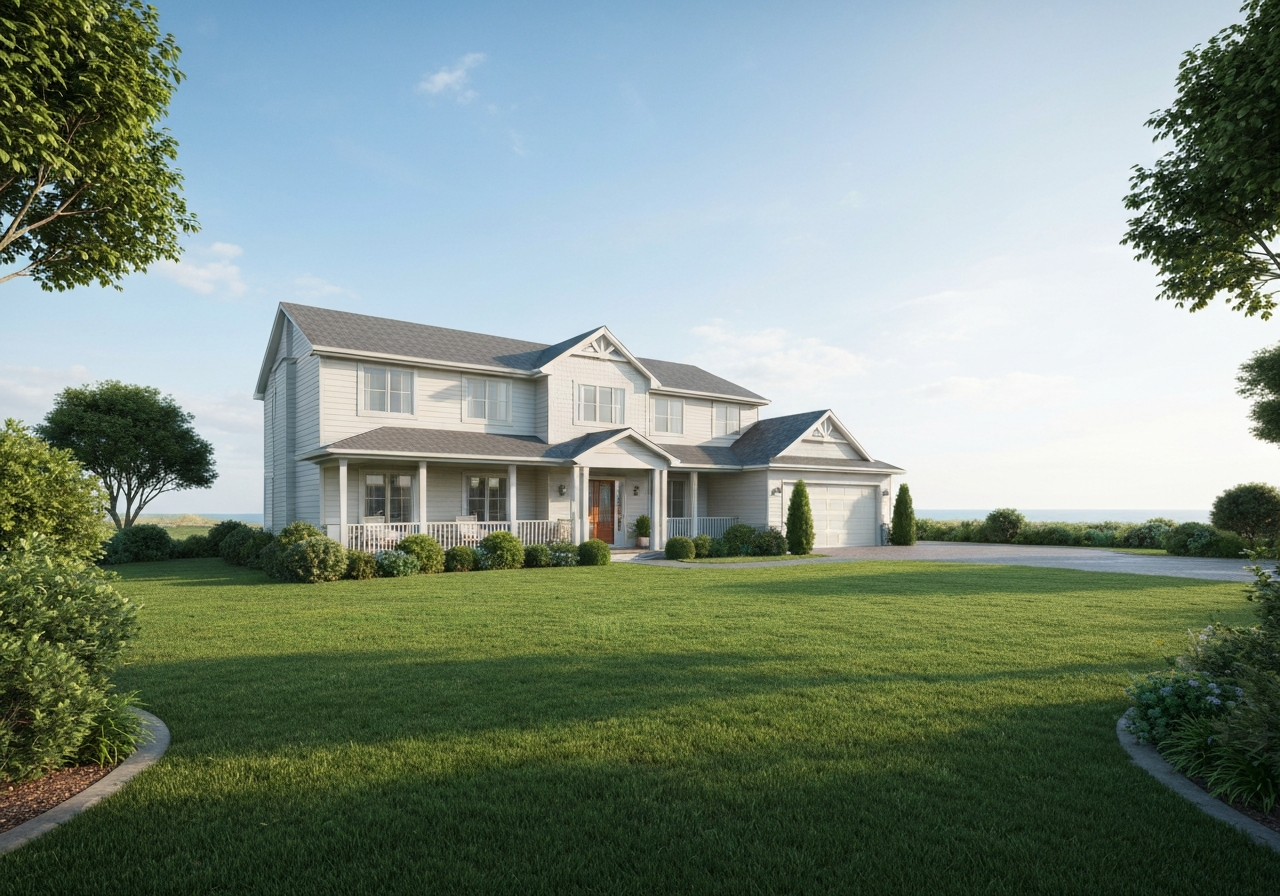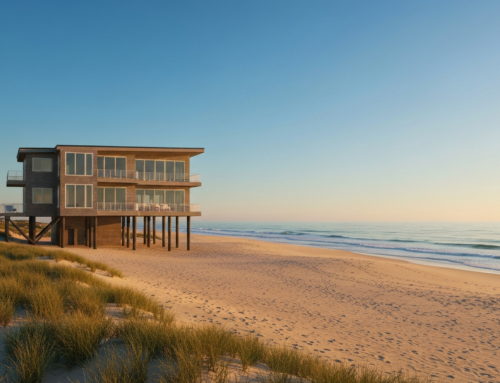Understanding Basic Homeowners Insurance: Simplified Safeguards for Your Home
Protecting your most valuable asset, your home, is essential. Understanding basic homeowners insurance provides the financial safeguards necessary to recover from unexpected events. A standard homeowners insurance policy is a comprehensive package designed to shield you from significant financial losses due to various perils, from natural disasters to theft and accidents. It’s more than just a legal requirement for many mortgage lenders; it’s a critical investment in your peace of mind and financial security. Beach Insurance LLC offers tailored homeowners insurance solutions to help you navigate these complexities and ensure your property is adequately protected.
The Pillars of Protection: What a Standard Policy Covers
Most standard homeowners insurance policies are structured around four core coverage areas, providing a robust safety net for homeowners and their families. These pillars collectively address potential damages to your property, loss of personal belongings, liability for accidents, and the costs associated with temporary displacement. Familiarizing yourself with these key components is the first step toward a well-protected home.
- Dwelling Coverage: Protects the physical structure of your home and attached components.
- Personal Property Coverage: Safeguards your belongings inside and sometimes outside your home.
- Liability Protection: Covers legal expenses and damages if you’re held responsible for injuries or property damage to others.
- Additional Living Expenses (ALE): Provides financial support if you can’t live in your home due to a covered loss.
Dwelling Coverage: Protecting Your Home’s Physical Structure
Dwelling coverage, often referred to as Coverage A, is the cornerstone of your homeowners policy. It’s designed to pay for the repair or rebuilding of your home’s physical structure if it’s damaged or destroyed by a covered peril like fire, wind, hail, or lightning. This includes the roof, walls, foundation, and built-in appliances and fixtures. It also extends to attached structures such as garages, porches, and decks.
When determining how much dwelling coverage you need, the critical factor is your home’s replacement cost, not its market value. Replacement cost is the amount it would take to rebuild your home from the ground up with materials of similar kind and quality, without deduction for depreciation. Factors influencing this cost include local construction expenses, square footage, architectural style, and materials. Many insurers also offer “extended replacement cost” or “guaranteed replacement cost” endorsements, which provide additional coverage beyond your standard limit, crucial in times of widespread disaster when construction costs surge.
Personal Property Coverage: Safeguarding Your Belongings
Beyond the structure, your homeowners insurance also protects your personal belongings, known as Coverage C. This includes furniture, clothing, electronics, sports equipment, and other items typically found in your home. This coverage usually extends even when your items are stolen or damaged away from your home, such as a laptop stolen from your car or luggage lost while traveling.
You generally have two options for insuring your personal property: actual cash value (ACV) or replacement cost. ACV policies pay the depreciated value of your items, meaning what they’re worth today. Replacement cost policies, while often slightly more expensive, reimburse you for the cost to purchase new items of similar kind and quality, without accounting for depreciation. For expensive items like jewelry, fine art, or collectibles, standard policies may have sub-limits. To fully protect these valuables, you may need to purchase a special “scheduled personal property” endorsement or floater.
Liability Protection: Peace of Mind for Accidents
Homeowners insurance isn’t just about protecting your property; it also shields you from financial loss due to liability. Personal liability coverage (Coverage E) protects you against lawsuits for bodily injury or property damage that you or family members, including pets, accidentally cause to other people, whether on or off your property. This can include a guest slipping on your icy sidewalk, your child accidentally breaking a neighbor’s window, or your dog biting a visitor.
This part of your policy covers both the cost of defending you in court and any damages a court rules you must pay, up to your policy limits. Most homeowners policies offer a minimum of $100,000 in liability coverage, though experts often recommend higher limits, such as $300,000 to $500,000, especially if you have significant assets. Additionally, Coverage F, or medical payments coverage, pays for minor medical bills for guests injured on your property, regardless of fault, helping to prevent potential liability claims.
Additional Living Expenses (ALE): Support During Displacement
Should a covered disaster render your home uninhabitable, Additional Living Expenses (ALE) coverage (Coverage D), also known as “loss of use,” becomes invaluable. This coverage reimburses you for the additional costs of living away from your home while it’s being repaired or rebuilt. Covered expenses can include hotel stays, temporary rental costs, restaurant meals above your normal food budget, laundry services, pet boarding, and even extra transportation costs.
ALE coverage aims to maintain your normal standard of living during displacement. It’s crucial to understand that ALE covers *additional* expenses, not your regular monthly bills like your mortgage or utility payments. Most policies provide ALE coverage as a percentage of your dwelling coverage, typically 20-30%, and may have a time limit for how long it will pay. Keeping meticulous records and receipts of all extra expenditures is vital for a smooth claims process.
Crucial Exclusions: What Your Standard Policy Typically Doesn’t Cover
While homeowners insurance offers broad protection, it’s equally important to understand what it typically doesn’t cover. Standard policies generally exclude damage caused by floods and earthquakes. For these perils, separate policies (such as federal flood insurance or a standalone earthquake policy) are usually required. Damage from neglected maintenance, pest infestations (like termites or rodents), and normal wear and tear are also typically excluded, as these are considered the homeowner’s responsibility.
Another common exclusion, particularly in coastal areas, can be windstorm or hurricane damage, sometimes requiring a separate deductible or even a separate policy. For example, understanding your hurricane deductible is crucial for homeowners in vulnerable regions, as it’s often a percentage of your home’s insured value, which can significantly impact your out-of-pocket costs.
Expert Tips from Beach Insurance LLC: Choosing and Customizing Your Policy
Choosing the right homeowners insurance policy requires careful consideration of your property’s unique characteristics and your personal needs. At Beach Insurance LLC, we emphasize personalized guidance to help you select a policy that offers comprehensive protection. Here are some expert tips:
- Assess Your Needs Annually: Review your policy at least once a year. Home renovations, new valuable purchases, or changes in local construction costs can all impact the adequacy of your coverage.
- Understand Policy Types: Different policy forms (e.g., HO-3, HO-5) offer varying levels of protection. An HO-3 policy, known as “special form,” is the most common, covering your dwelling for all perils not explicitly excluded and your personal property for named perils. HO-5 offers even broader “open peril” coverage for both your dwelling and personal property.
- Consider Endorsements: Don’t hesitate to add endorsements for specific risks not covered by a standard policy, such as water backup, identity theft, or increased limits for valuables.
- Choose the Right Deductible: A higher deductible can lower your premiums, but ensure it’s an amount you’re comfortable paying out-of-pocket in the event of a claim.
- Bundle Policies: Many insurers offer discounts for bundling your homeowners insurance with other policies, such as auto insurance.
Why Partner with Beach Insurance LLC for Your Home Protection
For homeowners, navigating the complexities of insurance can be challenging. Beach Insurance LLC is dedicated to providing clear, comprehensive, and tailored insurance solutions. Our expertise in personal insurance services, including homeowners insurance, ensures that you receive the most suitable coverage for your specific situation. We prioritize helping you understand every aspect of your policy, from dwelling and personal property coverage to liability and additional living expenses, so you can have confidence that your home and family are well-protected.
Ready to secure your home with comprehensive coverage? Visit our Contact Us page today to connect with Beach Insurance LLC.






